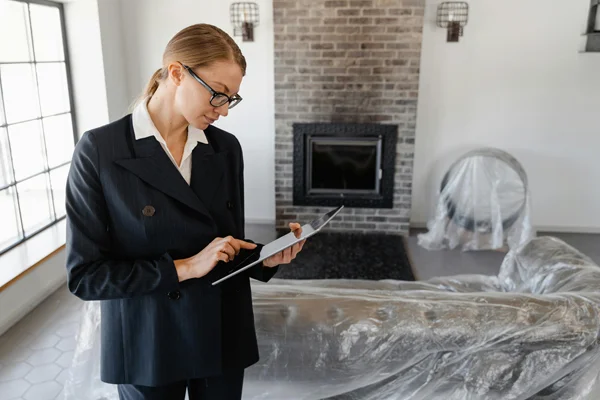Frequently Asked Questions About Real Estate Appraisals
Welcome to our page dedicated to Frequently Asked Questions About Real Estate Appraisals. These are the most common questions we receive about property appraisals. You can expand each section to read our answers. Whether you’re selling, buying, refinancing, settling an estate, in legal proceedings, or simply curious, the questions and answers will help you understand the real estate appraisal process.
If you have any additional questions, reach out to our team of appraisers. (757) 217-3660. We also make it easy for you to order a property appraisal.
Frequently Asked Questions – Topics
Click on each FAQ topic below to expand.
Understanding Property Appraisals

A property appraisal is an unbiased, supported assessment of real property based on a stated definition of market value. Only a licensed or certified appraiser can perform a real estate appraisal on a property.
There are a few approaches to estimate a property’s value:
First is the Sales Comparison Approach.
The Sales Comparison Approach, sometimes called the Market Approach to value, relies heavily on the concept/law of competition/substitution. This approach to value is the most commonly accepted and relied on approach to market value for most property types. The Sales Comparison Approach utilizes comparable sales data from the immediate market area, along with market derived adjustments to develop an overall opinion of market value. Adjustments rely on paired data analysis, using home sales from the market area, to illustrate estimated market reactions attributed to differences in physical characteristics and possible external influences.
Second is the Cost Approach.
This approach determines how much it would cost to “replace or reproduce” the property at the current cost, minus some estimated depreciation. The appraiser adds the value of the land upon which the property sits separately, without depreciation.
Third is the Income Approach.
This is commonly used to determine the value of rental or investment properties. The value is based on the potential income they can generate, and the rate of return expected from the investment. The Income Approach relies heavily on the estimated GRM (Gross Rent Multiplier) which is a statistic that conveys a property’s expected market value based on the expected gross rental income.
A licensed property appraiser applies their expertise and experience to evaluate the value of a property and provide an unbiased professional opinion of market value. The appraiser documents the findings and supporting evidence in an appraisal report, which is typically used in real estate transactions and for legal and tax purposes.
Accuracy of the appraised value is of the utmost importance. First and foremost, as licensed, certified appraisers, we undergo extensive education and have robust appraisal experience requirements. This includes 200-300+ hours of education and over 1,500 hours of appraisal experience. Continuing education is also required. We train to be objective and unbiased, allowing our firm to provide accurate property values on each assignment. Further, as part of our industry’s strict code of ethics, we must comply with national standards of practice for real estate appraisers. Enforcement of the USPAP, Uniform Standards of Professional Appraisal Practice, guarantees the appraisal rules and the generated report.
To be in line with industry requirements, appraisers must make sure of the following:
- The correct information analysis was used during the appraisal and report.
- That neither negligence nor carelessness occurred during any parts of the appraisal service.
- Neither individually nor collectively did they commit any errors of omission or commission.
- The final property appraisal report was complete, accurate, and transparent.
There are many different reasons that property appraisals are required or requested. Most often, mortgage lenders require an appraisal. During a mortgage transaction, the lender needs to know the value of the property to make sure it is sufficient collateral for the loan. Appraisers also regularly work directly with homeowners, attorneys, financial planners, estate planners, property investors, insurance companies, and CPAs.
The most common reason for a real estate appraisal is that the property in question is part of a real estate or mortgage transaction. These include:
- Applying for a mortgage loan.
- When refinancing your current loan.
- To gain a home equity loan or line of credit on the property.
- To document that an owner’s equity is at least 20%, for possible PMI removal.
- A pre-listing strategy to determine the most appropriate list price prior to listing a property for sale.
- To provide professional insight when negotiating pricing advantages when purchasing a home.
Other reasons to need an appraisal include:
- Real Estate tax assessment appeals.
- To help determine the property value in eminent domain cases.
- During divorce settlements to determine the equitable valuation of the property.
- In legal matters, appraisers document the property’s value, especially if no recent appraisal has been completed.
- To determine the optimal amount of insurance coverage.
- For investment purposes to evaluate value and potential profit.
- For estate planning, settlement, or inheritance purposes.
The Appraisal Process and Reports

This is one of the most frequently asked questions about real estate appraisals. An appraisal report is a formal, legal document that accurately and clearly conveys the market value of the property.
It typically includes the following items:
- Name of the client requesting the appraisal and any other intended users of the report.
- Address and type of property.
- The purpose of the appraisal and its intended use.
- Scope of work for the appraisal.
- The type and definition of value.
- Appraised value of the property.
- The effective date of the appraisal and any conclusions that apply. The report can be back dated in a retrospective appraisal report or completed subject to completion.
- Property characteristics that may impact the value, such as adverse/beneficial views or locations, physical description, property location, property rights, and economic attributes.
- Additional information like maps, zoning information, and building sketch.
- Any known encroachments on the property, including easements, building restrictions, leases, special assessments, contracts, covenants, or any other claims that may exist against the property.
- Additional items may be included based on the approach used to estimate a property’s value.
A Non-Mortgage Transaction
If the property owner is using an appraisal for a non-mortgage transaction, the situation is different. The report may state the purpose of the appraisal. If not, the property owner can use the appraisal for whatever purpose they’d like. For more information about other reasons for an appraisal, see “Who needs or wants a property appraisal?”
There are different definitions of market value, depending on scope of work and intended uses. However, most prominently used in appraisals is Fannie Mae.
From Fannie Mae:
“Market value is the most probable price that a property should bring in a competitive and open market under all conditions requisite to a fair sale, the buyer and seller, each acting prudently, knowledgeably and assuming the price is not affected by undue stimulus. Implicit in this definition is the consummation of a sale as of a specified date and the passing of title from seller to buyer under conditions whereby:
- buyer and seller are typically motivated;
- both parties are well informed or well advised, and each acting in what they consider to be in their own best interest;
- a reasonable time is allowed for exposure in the open market;
- payment is made in terms of cash in U.S. dollars or in terms of financial arrangements comparable thereto; and
- the price represents the normal consideration for the property sold unaffected by special or creative financing or sales concessions granted by anyone associated with the sale.”
Source: Fannie Mae Selling Guide
One of the most common frequently asked questions about real estate appraisals is “What should I do to prepare?” A homeowner or property owner can do a few things to prepare for the scheduled appraisal inspection.
When the appraiser is at the property:
The appraiser will need access to all areas of the property, inside and out. They will walk through to record, measure, and take pictures of the size, layout, and features of the property. This includes its overall general condition, so it is important to check your curb appeal and make any needed repairs ahead of time. Small tasks, such as removing clutter, trimming trees and bushes, and prepping a list of updates, allows the appraiser to obtain the most accurate data during the inspection. In addition, make sure that there is easy access to major appliances, the water heater, and HVAC systems.
To save time, a homeowner can also provide copies of the following documentation:
- A record of any improvements done to the property, including the dates, costs, and permits. Make sure to highlight any unique features and energy-efficient upgrades.
- A copy of the home plat showing the property and structure dimensions, easements, setbacks, address, and coordinates.
- If the property is changing hands, a list of the appliances and equipment that will convey to the new owners.
- A copy of inspections and treatments done in the past year. This can include moisture inspections, termite reports and treatments, well water reports, and septic system maintenance.
- Any relevant HOA/POA information.
- EIFS (synthetic stucco) documentation.
Appraisal Uses and Benefits

No! While both usually involve the sale or transfer of a property, a property appraisal and home inspection are not the same. An appraisal determines the market value, while a home inspection determines the condition and safety of the property. A licensed appraiser inspects the physical property and uses relevant market data to form an opinion of market value. Whereas a home inspector examines the physical condition of a property. A home inspection report will include physical and functional evaluations of both the property and its major systems like plumbing, electrical, HVAC, roofing, crawl spaces or basements, doors, floors, windows, foundation, and any other structural components of a dwelling.
A property appraisal is very different from a CMA.
Firstly, a licensed appraiser can absolutely perform a CMA for a property or a full appraisal. A CMA (Comparable Market Analysis) typically establishes a broad view of the most recent sales, trends, and range of sales within the subdivision. A property appraisal estimates the opinion of market value with supported rationale. The appraisal report helps significantly narrow a range of value, to a single opinion of market value, versus a CMA, which is primarily utilized to support a range of values.
Second, a licensed appraiser has an obligation to remain an objective, independent third-party person with no interest in the sales price of the property. On the contrary, a CMA is a tool that provides a comparative estimate to help decide the listing price of the property.
Lastly, appraisals are regulated, legally binding and performed by licensed or certified professionals who meet the specific standards and qualifications set forth by the governing state. CMAs are more informal and are a market-based estimate to guide real estate decisions.
The “real” answer is that it will depend on the particular location and the surrounding comparable properties. As a general rule of thumb, market value is not the same as cost. Sometimes market value reactions and cost may run closely alongside each other; however, it is not always the case. Appraisers utilize comparable market data for each particular market in order to gauge the extent of these market reactions. From our experience, updates or remodeling of the kitchen and/or baths is a great way to increase your projected market value.
Private Mortgage Insurance (PMI)
When the buyer makes a down payment on the property that is less than 20% of its value, the lender arranges to add private mortgage insurance (PMI) to a mortgage. It’s an insurance policy that helps protect the lender in case a borrower doesn’t pay on the loan. PMI is not the same as homeowner’s insurance. If the borrower reaches 20% or more equity, the borrower may request a PMI removal. This can happen by making enough principal payments or with an appreciation in value. A property appraisal can document if the property has appreciated enough to show a new minimum of 20% equity.
